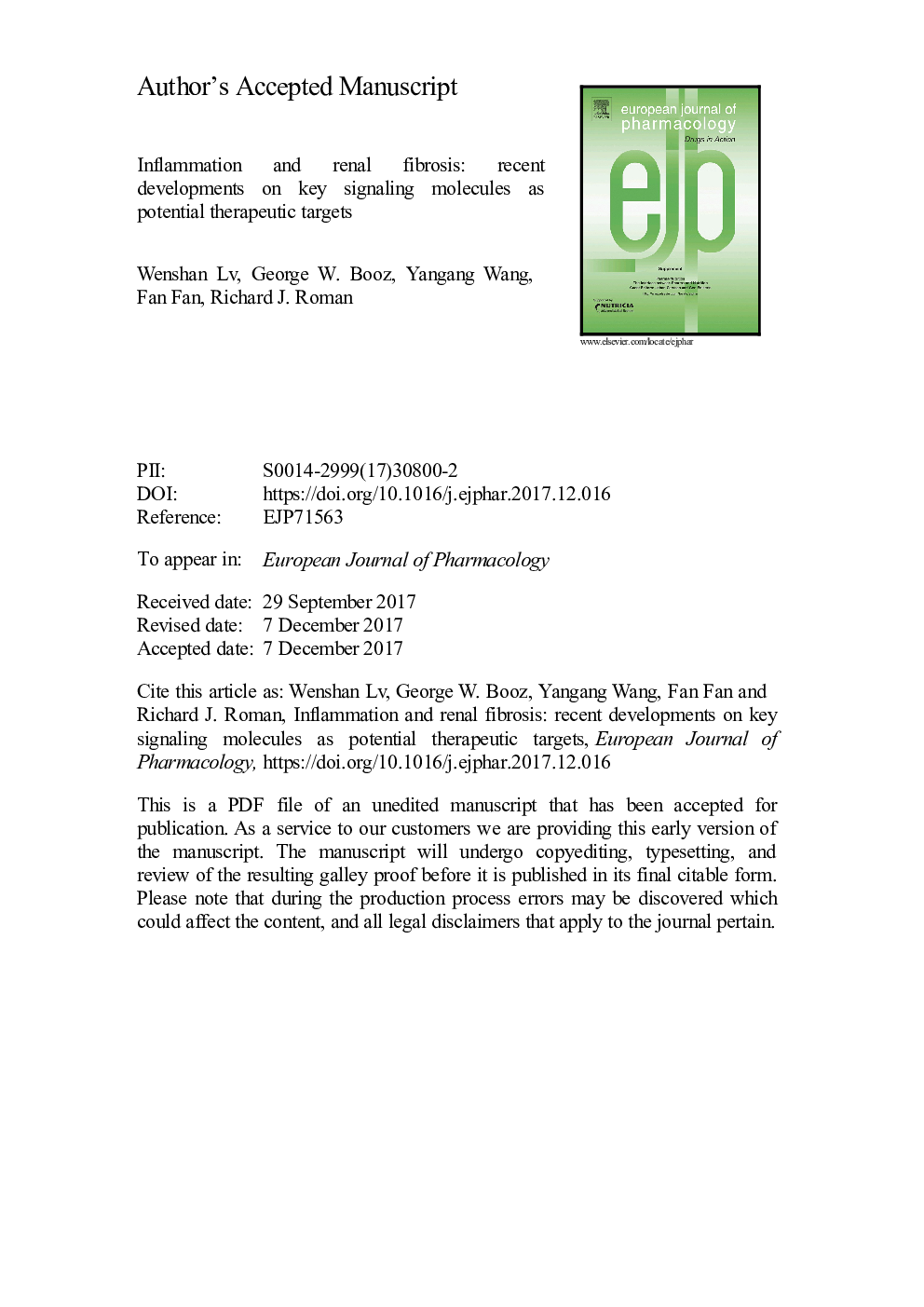| Article ID | Journal | Published Year | Pages | File Type |
|---|---|---|---|---|
| 8529468 | European Journal of Pharmacology | 2018 | 41 Pages |
Abstract
Chronic kidney disease (CKD) is a major public health issue. At the histological level, renal fibrosis is the final common pathway of progressive kidney disease irrespective of the initial injury. Considerable evidence now indicates that renal inflammation plays a central role in the initiation and progression of CKD. Some of the inflammatory signaling molecules involved in CKD include: monocyte chemoattractant protein-1 (MCP-1), bradykinin B1 receptor (B1R), nuclear factor κB (NF-κB), tumor necrosis factor-α (TNFα), transforming growth factor β (TGF-β), and platelet-derived growth factor (PDGF). Multiple antifibrotic factors, such as interleukin-10 (IL-10), interferon-γ (IFN-γ), bone morphogenetic protein-7 (BMP-7), hepatocyte growth factor (HGF) are also downregulated in CKD. Therefore, restoration of the proper balance between pro- and antifibrotic signaling pathways could serve as a guiding principle for the design of new antifibrotic strategies that simultaneously target many pathways. The purpose of this review is to summarize the existing body of knowledge regarding activation of cytokine pathways and infiltration of inflammatory cells as a starting point for developing novel antifibrotic therapies to prevent progression of CKD.
Related Topics
Life Sciences
Neuroscience
Cellular and Molecular Neuroscience
Authors
Wenshan Lv, George W. Booz, Yangang Wang, Fan Fan, Richard J. Roman,
